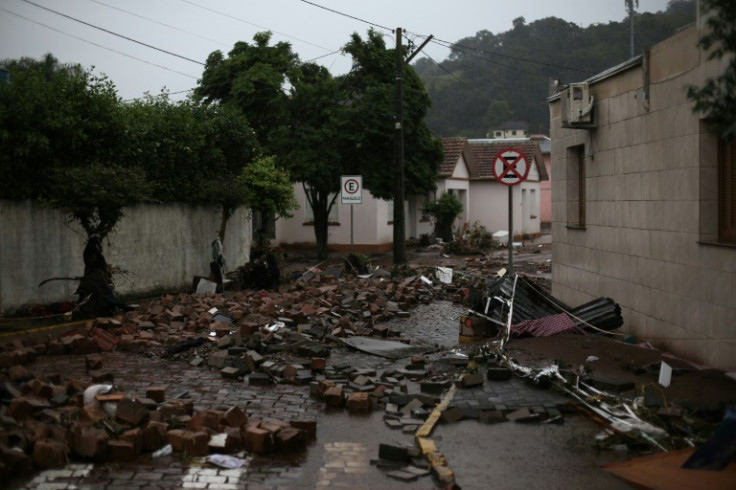
At least 10 people have died in floods caused by heavy rains in Brazil's south, authorities said Wednesday, as rescuers searched for nearly two dozen individuals reported missing.
The deluges in the state of Rio Grande do Sul have displaced some 1,400 people in more than 100 municipalities, most of whom have been moved to shelters.
"We continue to work hard to locate the missing and to ensure the safety of at-risk areas," the state's governor, Eduardo Leite said on social media.
"Unfortunately, there is more rain forecast for today," he said, with warnings for up to 300 millimeters (nearly 12 inches) in some areas.
Persistent rains have destroyed bridges and blocked roads, leaving several communities completely cut off.
Authorities have urged people to avoid at least 20 areas along state highways due to a risk of mudslides.
Since Tuesday, rescuers and soldiers have been scrambling to free families trapped in their homes, many stuck on the roof to escape the rising water.
Bad weather has hampered the rescue efforts, often in hard-to-reach places, and the death toll has continued rising from an initial five reported Tuesday.
Leite, the governor, has requested the federal government send aircraft to aid the rescue effort and said rapid response teams were being deployed to the most urgent situations "that pose a risk to life."
President Luiz Inacio Lula da Silva wrote on X that the government was sending help to teams responding to the disaster, which he said was the result of climate change.
Tens of thousands of people across Rio Grande do Sul have been left without drinking water, officials said, and telephone and internet services were down in at least 60 municipalities.
In an effort to reach dry ground, residents of the small city of Encantado have been leaving the area on foot or by motorcycle over damaged and mud-caked roads, AFPTV observed.
About 100 kilometers (62 miles) away, the town of Sinimbu was submerged in water, its streets transformed into rivers.
Mayor Sandra Backes said the town was without internet, drinking water and electricity, describing the situation as "a nightmare."
"Sinimbu is like a war zone, completely destroyed... All the stores, businesses, supermarkets, everything is devastated,' she said in a video posted on Instagram.
The region's rivers had already been swollen from previous storms, and torrential rains in late March in southeastern Brazil left at least 25 people dead in the states of Rio de Janeiro and Espirito Santo.
South America's largest country has suffered a string of recent extreme weather events, which experts say are made more likely by climate change.
The floods came amid a cold front battering the south and southeast, following on a wave of extreme heat.









